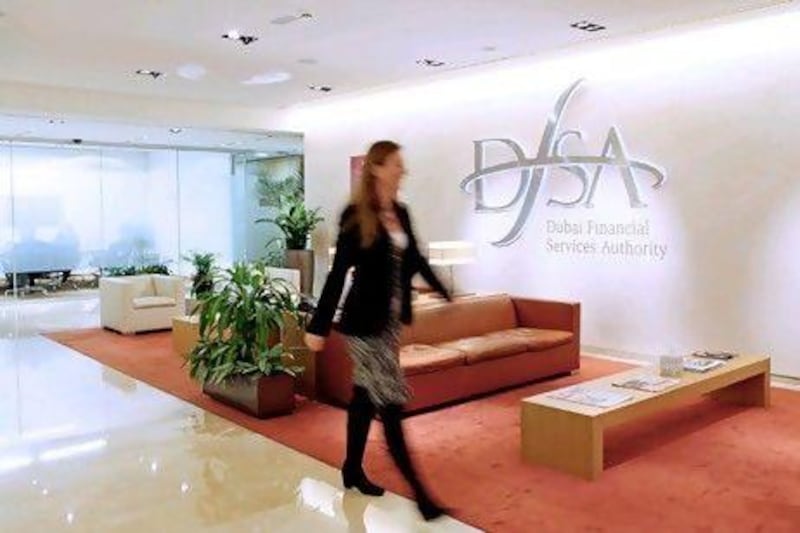The Dubai unit of a global online trading company is closing nearly 1,200 customer accounts after it was fined Dh1.1 million (US$299,470) by a financial regulator for deficiencies in its anti-money-laundering controls.
More Business news: Editor's pick of today's headlines
Last Updated: May 02, 2011
Global markets react to Bin Laden killing News that Osama Bin Laden has been killed in a US operation had an immediate impact on markets around the world. Read article
UAE bourses have 'bigger issues' than Osama bin Laden's death Equities in the UAE were little changed at the open after news emerged that Osama Bin Laden was killed by US forces. Read article
DIFC unit cuts losses and defers $1bn loans Dubai International Financial Centre Investments reported losses of $247.7 million in 2010, but said it was reducing its debts and planning to sell assets to get on track. Read article
Further delay for Dh 1.8 billion Damas deal The Middle East's largest jeweller has extended a deadline to agree a creditor repayment plan by another month. Read article
Phased return for Sony network Sony expects gaming, music and video services to be turned on 'within the week' after its network was attacked by hackers, gaining access to the data of 77 million users. Read article
[ Back to business ]
E-Trade Securities entered into an enforceable undertaking with the Dubai Financial Services Authority (DFSA), which regulates the Dubai International Financial Centre, that requires the company to pay Dh734,580 within 30 days.
The remainder of the fine will be suspended pending its "taking all steps to remediate the DFSA's concerns", according to an announcement yesterday.
The DFSA has been taking a harder line with anti-money laundering controls in recent months. It announced an administrative censure for Saxo Bank, the commodities trading company, in March.
The bank had failed to perform due diligence on clients and to monitor transactions, among other breaches, although it was not fined. The DFSA said E-Trade Securities had failed to obtain sufficient documentary evidence of the origin of funds or sources of wealth of clients or have adequate policies to "address the need to assess the money-laundering risk of its clients".
A spokeswoman for the DFSA would not give details on why E-Trade Securities was fined and Saxo Bank given a milder censure, except to say each case was judged on its own facts.
"The DFSA looks at each and every matter on its merits, and takes the action that it considers appropriate," she said.
"While the conduct in both of these matters relates to apparently similar anti-money laundering concerns, the factual circumstances of each matter are different and the DFSA has responded accordingly."
The action arose after a periodic check of E-Trade Securities in April last year, where the DFSA reviewed 25 of the company's customer files and "identified a number of systems and controls deficiencies" with regards to anti-money-laundering rules.
The company tried to rectify the situation by getting customers to fill out additional information, but 1,196 customers failed to respond and E-Trade Securities had "taken steps to close the accounts of those customers who failed to respond", according to the DFSA.
E-Trade Securities did not respond to a request for comment.
"This is a new era for financial services, and firms must be more vigilant in meeting today's requirements," said Paul Koster, the DFSA chief executive. "The action taken against E-Trade shows that the DFSA considers the anti-money-laundering and Know Your Customer systems and controls of firms in the DIFC to be of fundamental importance in this new era."
Money laundering and terrorist financing have been highlighted as the top risks to the DIFC's reputation, so more resources have been devoted to finding companies that are not complying with its rules.
The DFSA's more intense focus on these issues comes as governments around the world put greater pressure on Iran to stop its uranium enrichment programme, and warnings were issued from different countries and the UN about flows of money out of countries such as Egypt and Tunisia, which had faced political upheaval.
Last year, the DFSA froze the assets of Persia International Bank's Dubai branch in response to tougher sanctions from the EU. Persia International is 60 per cent owned by Bank Mellat, an Iranian state-owned lender.





